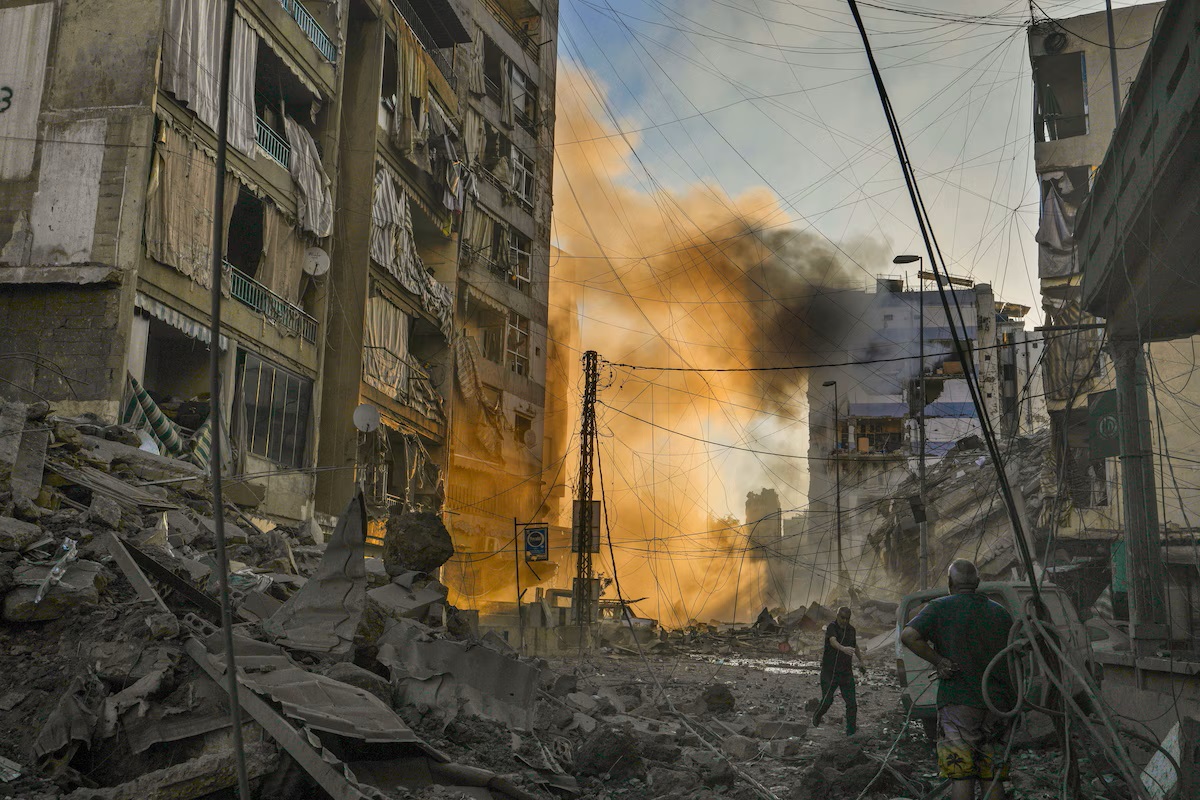On Tuesday, Israel’s military announced the initiation of ground operations in southwest Lebanon, extending its incursions to a new area one year after hostilities commenced with the armed group Hezbollah, despite the UN’s appeals for a diplomatic resolution.
The regional tensions initiated a year ago by Hamas’s assault on southern Israel have escalated into a series of Israeli military operations by land and air in Lebanon, alongside direct assaults by Iran on Israeli military installations.
On Tuesday, Iran cautioned Israel against any assaults on the Islamic Republic, following a week after Tehran launched a series of missiles at it, heightening tensions in the Middle East.
Foreign Minister Abbas Araqchi stated that any assault on Iran’s infrastructure will provoke retaliation, cautioning Israel against such actions.
Araqchi will commence a visit to Saudi Arabia and additional Middle Eastern nations on Tuesday to address regional matters and endeavor to halt Israel’s “crimes” in Gaza and Lebanon.
Gulf Arab states, predominantly significant energy exporters such as Iran, have endeavored to assure Tehran of their impartiality in the Iran-Israel conflict, sources informed Reuters last week.
Araqchi stated in a video broadcast by state media, “Our discussions persist concerning the regional developments aimed at thwarting the egregious offenses of the Zionist regime (Israel) in Lebanon, following its transgressions in Gaza.”
Araqchi stated, “Commencing today, I will embark on a journey to the region, including Riyadh and other capitals, and we will endeavor to initiate a collective effort among the regional countries to halt the violent assaults in Lebanon.”
The Israeli military intensified pressure on Hezbollah, which is supported by Iran, by stating it was executing “limited, localized, targeted operations” in southwestern Lebanon, following similar announcements for the southeastern border region.
Israel’s military targeted the southern suburbs of Beirut overnight, claiming to have eliminated a senior Hezbollah official responsible for the group’s budgeting and logistics.
Should it be verified, the demise of Suhail Hussein Husseini would represent the most recent instance in a series of Israel’s targeted killings of leaders and commanders associated with Hezbollah and its ally Hamas.
In a significant setback for Hezbollah, Israel eliminated its leader Hassan Nasrallah in an airstrike in the southern suburbs of Beirut late last month.
The United Nations Special Coordinator for Lebanon and the leader of the UN peacekeeping mission in the region stated on Tuesday that their persistent calls for restraint have “gone unheeded” during the year since hostilities commenced between Hezbollah and Israel.
“Today, one year later, the frequent exchanges of fire have intensified into an unyielding military campaign, resulting in a humanitarian impact that is profoundly catastrophic,” they stated in a joint declaration.
The assaults have heightened concerns that the United States, Israel’s primary ally, and the Islamic Republic of Iran could become embroiled in a comprehensive conflict in the oil-producing Middle East.
The animosity between Iran and Israel has escalated following years of covert conflict and targeted killings, culminating in direct confrontations that have heightened regional tensions.
Israel is considering responses to Tehran’s ballistic missile assault last week, which was executed in retaliation for Israel’s military operations in Lebanon.
The US news outlet Axios reported that Israeli officials indicated Iran’s oil facilities may be targeted, representing a significant escalation that could elevate global oil prices.
On Friday, President Joe Biden stated that he would consider alternatives to targeting Iranian oilfields if he were in Israel’s position, noting that he believed Israel had not yet determined its response to Iran.
Israeli airstrikes have displaced 1.2 million individuals in Lebanon, and the escalation of Israel’s bombing campaign has caused significant concern among Lebanese citizens regarding the potential for extensive destruction similar to that inflicted on Gaza.
Israeli forces cautioned beachgoers and boaters in Arabic to refrain from approaching a segment of the Lebanese coastline, indicating that they would soon initiate operations against Hezbollah from the maritime domain.
Approximately 2,000 Lebanese individuals have perished since Hezbollah commenced its assaults on Israel a year ago in support of Hamas, with the majority of fatalities occurring in recent weeks.
The Israeli military has characterized its ground operation in Lebanon as localized and limited; however, it has progressively escalated in magnitude since last week.
The Israeli Defense Forces state that their objective is to eliminate Hezbollah fighters from border regions, with no intention of advancing further into Lebanon.
